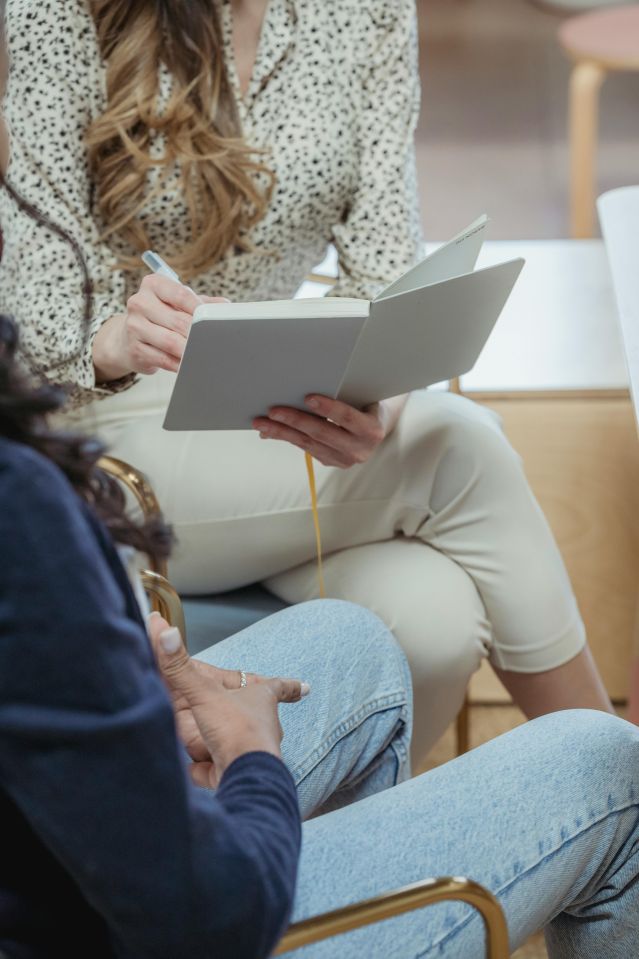Gratitude
How to Focus on the Positive
The benefits of a joint gratitude journal.
Updated June 19, 2024 Reviewed by Lybi Ma
Key points
- Gratitude journals can have a positive effect on well-being and on relationships.
- The benefits of gratitude journals are long-lasting.
- Engaging in a joint gratitude journal practice can be a helpful relationship ritual.

It seems like gratitude journals pop up on every holiday present or self-care necessity list. Through a simple online search, you can find a multitude of styles and approaches, each with its own guide to expressing gratitude. Sure they’re popular, but do they help?
A study conducted by Wong and colleagues (2018) found that adults who wrote letters expressing gratitude to others reported better mental health than adults who wrote about their thoughts and feelings related to stressful experiences. These benefits were witnessed both four and 12 weeks after the experiment (Wong and colleagues, 2018). Therefore, the benefits of focusing on gratitude are long-lasting.
Another study carried out by Stefan and colleagues (2021) examined the practice of gratitude letters in enhancing the experiences of students in an online graduate psychology program. One hundred and twenty-three students were assessed over three weeks, a time during which they were instructed to write gratitude letters. Their gratitude letters were to either be hand delivered or read to a person who has had a meaningful impact on the participants during a virtual call. Participants noted that writing the letters to the recipients had a positive impact on their relationships. Some noted feeling as if the act enhanced their bond, revived the relationship, and led to a recommitment between the pair. Results also demonstrated improvements in life satisfaction and feelings of happiness post-letter writing.
Since expressing gratitude can be so impactful, let’s examine some concrete ways in which you can combine a journaling practice with gratitude in ways that may positively affect your relationship. You need not purchase an expensive journal unless you want to. You can create a one-of-a-kind journal with your partner, turning the process of making one into a fun, joint activity. Get creative.
When creating your journal, you may want to consider the following:
Plan to write in the gratitude journal around the same time each day.
Pick a time when you and your partner are home, it's a time that you can consistently set aside each day, without other responsibilities interfering. This time should preferably be in the evening so that you can recount the events of the day and record those that you feel the most gratitude for. By engaging in the process of writing in the gratitude journal each day, you will be able to create a relationship ritual and will be much more likely to stick with it over time.
Focus on positive events or feelings as they relate to your relationship during the day.
Since the purpose of this journal is to focus on and enhance your relationship, write about experiences you shared, conversations you engaged in, or feelings that come up when thinking about your partner. What you choose to record need not be big, such as celebrating an anniversary. There is something nice about focusing on the positive aspects of ordinary daily occurrences. You and your partner shared a good cup of coffee before running out the door in the morning. Great, jot it down. You received a sweet text message from your partner checking in on you while at work. Perfect, into the journal it goes.
Add the why, not just the what.
The more specific you can be, the better. By writing down the why, and not just the what, you get into the emotions associated with the experience. For example, rather than simply recording the coffee that you shared, adding that it made you two feel more connected will help you focus on why the events were so meaningful.
Do this together.
Remember this is a gratitude journal focusing on your relationship; the activity is meant as a way for you and your partner to spend time together. The activity in and of itself can be really rewarding and provide you with a keepsake to look back on, chronicling the wonderful day-to-day aspects of your partnership.
References
Stefan, D. R., Lefdahl-Davis, E. M., Alayan, A. J., Decker, M., Kulwicki, T. M., Parsell, J. S., & Wittwer, J. L. (2021). The impact of gratitude letters and visits on relationships, happiness, well-being, and meaning of graduate students. Journal of Positive School Psychology, 5(2), 110-126.
Wong, Y. J., Owen, J., Gabana, N. T., Brown, J. W., McInnis, S., Toth, P., & Gilman, L. (2018). Does gratitude writing improve the mental health of psychotherapy clients? Evidence from a randomized controlled trial. Psychotherapy Research, 28(2), 192-202.


